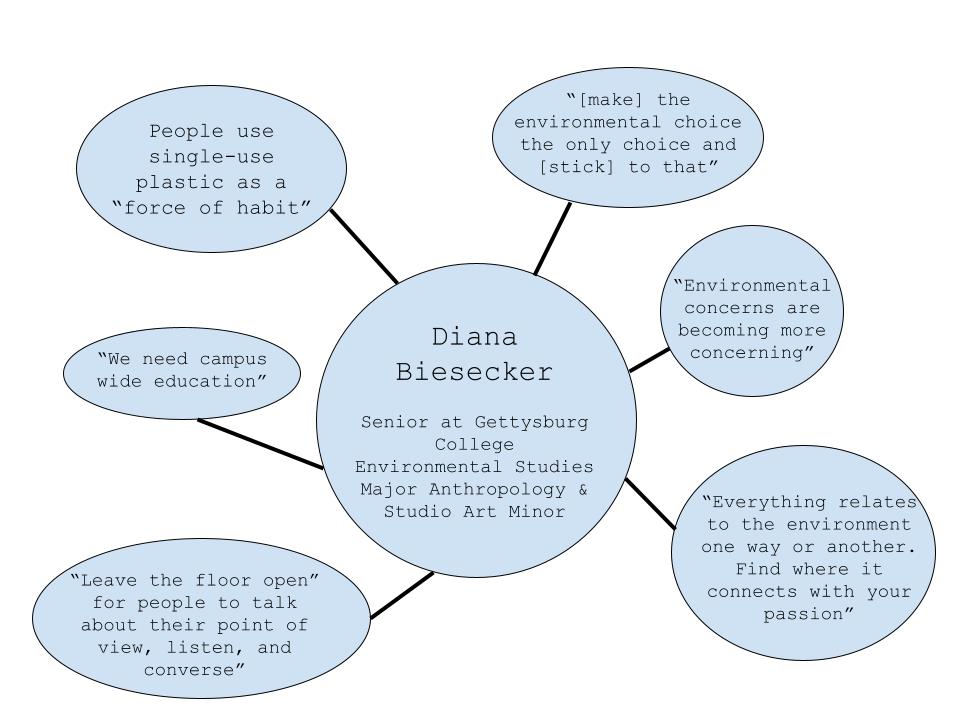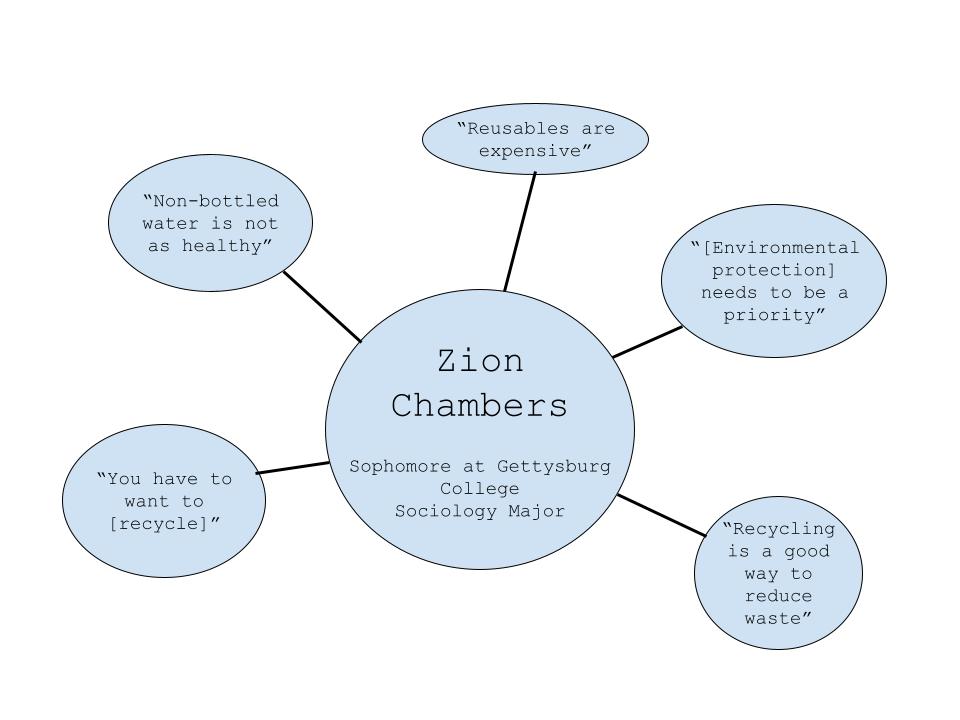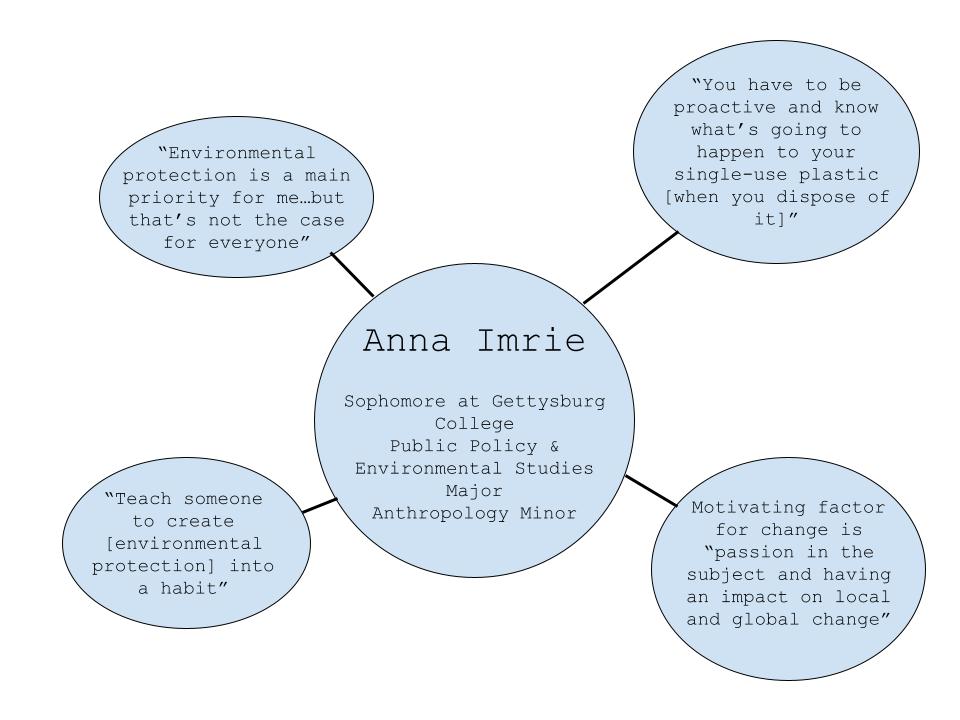The International Journal of Sustainability in Higher Education, a peer-reviewed source, states “[a]lthough students are concerned about the environment, they do not associate their daily actions with larger environmental issues” (Choate et al, 2018).
Let’s see what Gettysburg College students think about plastic use and how that aligns with their plastic use!



As you can see from their quotes, there is a trend between education and a desire for environmental protection. Environmental Studies majors and those with an environmental background and/or family involved in environmental work are more likely to be environmentally conscious and work to implement environmental protection within their daily lives.
Education is one way to allow non-ES major students to have that passion. Environmental efforts “start with students” and we need to act now because “environmental concerns are becoming more concerning” (Biesecker).
Gettysburg College has an obligation as a liberal arts institution and as an institution shaping future leaders to educate students on environmental protection. I believe a large disconnect present in education currently is that it focuses on scientific and abstract application but does not focus on daily application or policy change.
Not only do our actions as individuals matter, but our actions and voices as students on a small campus have the power to create a ripple effect among students and change campus policies to be more environmentally conscious. The best method of education is to lead by example. “If the role of colleges and universities is to educate members of society, then they must be actively instrumental in the sustainability movement” (Boca and Saraçli, 2019). Therefore, our Gettysburg college policies need to reflect environmental protection.
My interviewees were quick to come to the answer of “convenience” when asked why they think people use single-use plastic water bottles. This speaks volumes to one of the main problems at hand and provides a lens for addressing this issue. If convenience is what motivates our personal actions and inhibits us from making environmentally conscious actions, then we need to “make the environmental choice the convenient choice” (Biesecker).
Anna Imrie, the former Student Senate Sustainability chair stated that “passion” is what motivates her sustainability efforts.
Biesecker also states that “everything relates to the environment one way or another. Find where it connects with your passion!”
Biesecker, Diana, DB. (2021, October); personal communication – in-person. President of Gettysburg College Gettysburg Environmental Concerns Organization (GECO).
Boca, G. D., & Saraçlı, S. (2019). Environmental education and student’s perception, for Sustainability. Sustainability, 11(6), 1553.
Chambers, Zion, ZC. (2021, October); personal communication – in-person. Gettysburg College football player.
Choate, B., Davis, B. Y., & Verrecchia, J. (2018). Campus bottled water bans, not always the solution. International Journal of Sustainability in Higher Education, 19(5), 987-997.
Imrie, Anna, AI. (2021, October); personal communication – in person. Fall 2021 Student Senate Sustainability Chair.